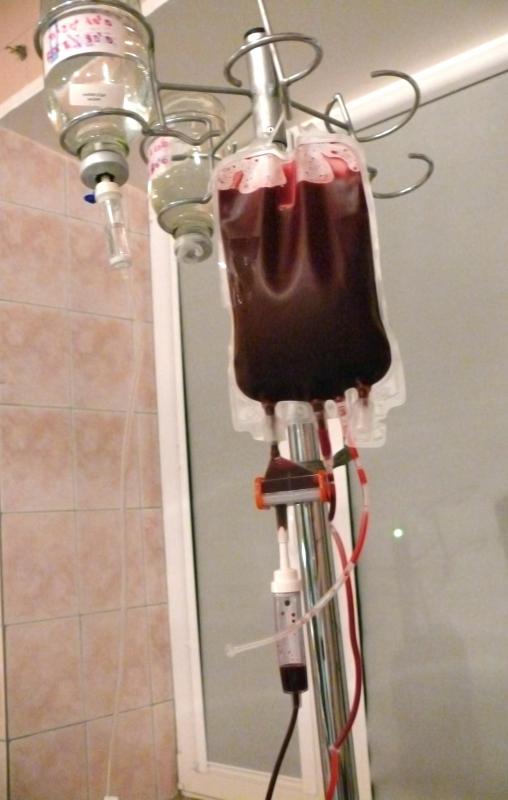At WiseGEEK, we're committed to delivering accurate, trustworthy information. Our expert-authored content is rigorously fact-checked and sourced from credible authorities. Discover how we uphold the highest standards in providing you with reliable knowledge.
What Is Alloimmunity?
Alloimmunity is the development of reactions to antigens produced by members of the same species. The body recognizes them as foreign and attacks them, just like it would if it was exposed to antigens from other organisms. This can cause disease or injury as the immune system attempts to break down the foreign cells. It can be a concern with patients who receive transfusions, grafts, and transplants, and may also be a problem in some pregnancies.
Individuals within a species form compounds like major histocompatibility complexes that differ from those made by other individuals. These are recognized by the immune system as friendly, because they are produced by the body itself. In alloimmunity, exposing another member of the same species to those complexes results in the formation of an immune reaction. It identifies the compounds as foreign and attacks them. This can be a significant issue with allografts, transplant materials taken from other people.

In pregnancies, sometimes an alloimmune reaction between the mother and the fetus occurs. The mother’s body identifies compounds in the fetal blood as alien, and her immune system attacks them. The mother's alloimmunity can cause thrombocytopenia in the fetus or newborn. The severity of the condition can depend on the specific nature of the reaction and treatment options can include monitoring and transfusions of fresh platelets to boost the baby’s levels.

The development of alloimmunity can play a role in transfusion reactions as well as graft or transplant rejection. Some types of transplants appear to be less prone to this problem than others. Corneas, for example, can be readily transplanted with minimal matching between donor and recipient. Other organs and tissues may require very careful matching to check for obvious antigen reactions, and even then, the patient’s body may develop an immunity to antigens in the transplant material. Medications to suppress the immune system may reduce the risk of alloimmune reactions.

Recipients are not the only ones who can develop alloimmunity. A potential complication of bone marrow transplants known as "graft versus host" disease involves the development of a reaction in the donor marrow. It identifies compounds found in the recipient’s body as dangerous, and starts attacking them. As the new bone marrow replicates and starts producing blood cells that enter circulation, they mount attacks on the recipient’s own tissues. Patients may need to be treated with immune suppressants to moderate the reaction while still allowing the bone marrow to function.
AS FEATURED ON:
AS FEATURED ON:













Discussion Comments
My mom had an alloimmunity reaction when she was pregnant with me. My mom has B Rh- blood type and my dad has 0 Rh+. Apparently when a female has a negative blood type and a male has a positive blood type, the second child of the couple is at risk because of alloimmunity.
My mom gave birth to my brother before me. During this first pregnancy, her body developed alloimmunity towards my brother who has a positive blood type. So when she became pregnant with me, her doctors expected that her body would reject me because of alloimmunity.
Despite doctor's warnings, my mom gave birth to me and I was born without any health problems. I'm sure that doctors can treat this condition now, but treatments weren't available then. My mom always says that I'm a miracle for that reason.
@alisha-- Yea, that's true.
I think what's much more interesting than the immune system rejecting a foreign compound, is when alloimmunity attacks the body itself.
Immunosuppressants aren't just used for organ transplants where the organ is completely foreign to the body. It's also used for autoimmune diseases where the body attacks itself. Rheumatoid arthritis is one of those diseases where the immune system attacks the tissues around joints.
No one knows why alloimmunity turns against itself and attacks the body that maintains it. If scientists are able to find out the reason to this phenomenon, I think it will be one of the biggest accomplishments in medical history.
Is alloimmunity the reason why people who receive organ transplants take immunosuppressant drugs?
I think these drugs weaken the immune system so that the alloimmunity reaction doesn't take place and the body doesn't reject the organ.
It's so interesting how something like alloimmunity that helps protect us from disease can also hurt us in some cases, isn't it?
Post your comments